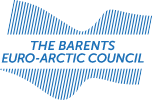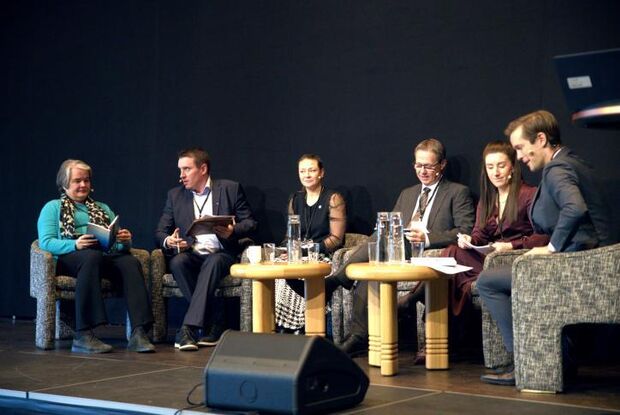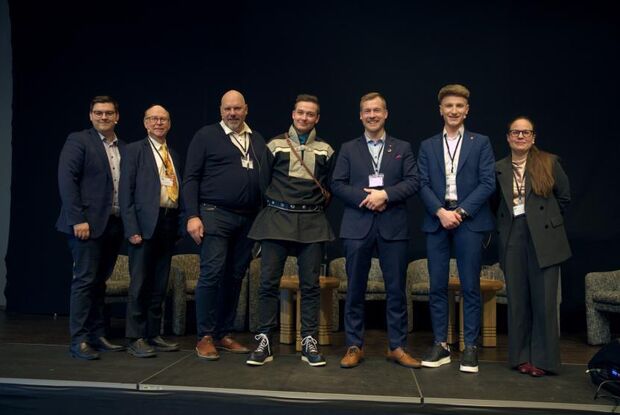Working together to improve health
In my opinion, it is important to build a sustainable development by cross-border relations with national and regional cooperation. We need to work together to improve health in the Barents Region. Our Working Group provides such a political structure for health and social cooperation with meetings across the borders and regions.
I have been working with health and social cooperation in the Barents region for five years. My first meeting was in Arkhangelsk. An inspiring and very interesting meeting with discussions on relevant topics, study visits and a cultural event. I was very attracted to work in this structure with representatives from both several Barents regions and national level.
I have one special memory from our chairmanship, when the county of Västerbotten arranged a fantastic virtual guided tour in Umeå this spring. We also made a visit to Umeå University with very interesting and well-conducted presentations about research cooperation in the Barents, the climate change with aspects of climate on health in the Barents and preventing suicide in Sápmi.
Lessons learned
The pandemic has shown that health is the foundation of functioning and wealthy societies. Our societies are interlinked with each other, and we share same interests and we face common challenges. I am sure that our future cooperation between our countries and regions will be even closer and integrated in health and social issues in the years to come.
Digital transformation and solutions of our health systems are of high relevance for the future (and current) challenges we face in the Barents Region. We will have to cooperate and take advantage of the new technologies made possible through digitalization with the patient in focus. Our working group will probably also work more closely with other organizations such as the Northern Dimension Partnership in Public Health and Social Well-being (NDPHS) and the World Health Organization (WHO) and the Nordic Council of Ministers.
Lessons learned from the pandemic will help us to further strengthen and revitalize our cooperation and seek synergies with other regional organizations in the northern parts of the world. We should work together to strengthen our respective preparedness for future health risks. The vulnerabilities of healthcare systems have been revealed by the pandemic and an even closer cooperation for the future will be important. In this way we can limit the negative effects of future pandemics.
Norwegian initiative to convene Barents Health Ministers' Meeting
A very important and successful first ministerial meeting on health was held in November 2019. Ministers and high-level representatives noted that the health collaboration has steadily increased in significance and is now regarded as a vital part of the Barents Cooperation. They also recognized the benefits of the participation of both national/federal and regional health authorities in this Working Group, reflecting the two-level structure of the Barents Cooperation.
Ministers and high-level representatives commended the JWGHS for developing the 6th Framework Programme for Cooperation on Health and Related Social Issues that provides the framework for collaboration and joint activities, and a common ground for exchange of knowledge and experience. They further discussed the development and future direction of the Barents Cooperation in health and related social issues along the main priority lines of the Framework programme: prevention of communicable diseases, prevention and control of non-communicable diseases, improvement of the situation for children and youth at risk and new technologies and working methods for health care in sparsely populated areas.
First digital chairmanship
During our chairmanship we have had a great cooperation with the Republic of Karelia as a Co-Chair of this Working Group, but unfortunately have never been able to meet physically. It will be the very first digital chairmanship in our working group. Something to remember and interesting how this will affect future cooperation in the Barents Region. We will have to evaluate how this period can contribute to a future strengthened cooperation.
Only to work with digital solutions for such a long time has been challenging of course, but it has gone much better than I initially thought. Planning and patience are two important ingredients in digital meetings. The technology has development opportunities, and digital meetings have come to stay, but as a complement and as a part of an even strengthened cooperation.
It is very rewarding and important that we work together across the sectors with a horizontal perspective within the Barents Cooperation and launch important and relevant projects and events in thematic areas. We have had a very good and productive cooperation with Norway as a Chair of the BEAC and Västerbotten as a Chair of the Barents Regional Council. Two good examples of projects are participation in the Barents E-health conference held last year and the Conference on Health Cooperation in the Barents Region after Covid-19, held recently online.
Västerbotten is currently carrying out a Study on children’s physical health in the region to understand the current situation regarding children’s physical health and what can be learned and shared between regions. This is in line with the priority programme within the JWGHS on Children and Youth at Risk and will be presented in the next meeting of the Working Group. Another important example is the work we have done together with the Working Group on Environment on updating the Action Plan on Climate Change.
The latter has very important aspects of climate on health. We need to explore possibilities and actions to strengthen cooperation and awareness raising on health and climate, e.g. on climate-sensitive infections, drinking water supply and food security and also introduce climate change in our next Framework Programme.









